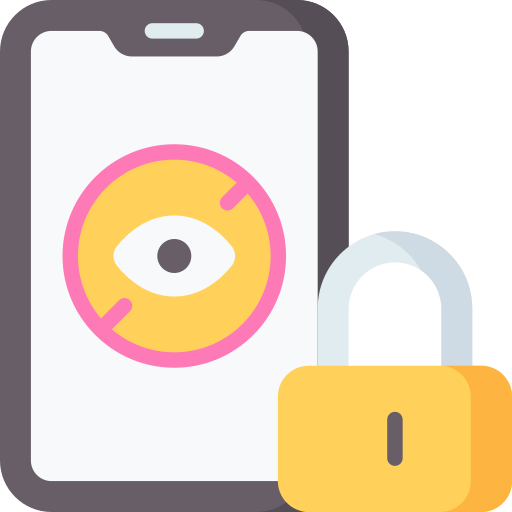What Are Family Locator Apps and How Do They Work?
Family locator apps are mobile applications that allow users to track the location of their family members in real-time. These apps use a combination of GPS technology and cellular data to provide accurate and up-to-date information about the whereabouts of loved ones. Once installed on each family member’s smartphone, these apps can be accessed through a central dashboard or interface.
To work effectively, family locator apps require both the app to be installed on each user’s device and for all devices to have an active internet connection. The app uses GPS signals from the user’s phone to determine their exact location, which is then transmitted back to the central server where it can be viewed by other authorized users. Some apps also offer additional features such as geofencing, which allows users to set virtual boundaries and receive notifications when a family member enters or leaves a designated area.
One important thing to note is that family locator apps typically require consent from all parties involved before they can be used. This ensures that everyone’s privacy is respected and prevents any potential misuse of personal information. Additionally, most reputable family locator apps have built-in security measures such as encrypted data transmission and secure login credentials, ensuring that sensitive information remains protected at all times.
Understanding the Benefits of GPS Tracking for Families
GPS tracking technology has become increasingly popular among families for its numerous benefits. One of the key advantages is the ability to ensure the safety and security of loved ones, especially children and elderly family members. With a GPS tracking device or app, parents can easily monitor their child’s whereabouts in real-time, providing peace of mind knowing they are safe at all times. This feature is particularly useful for busy parents who may not always be able to physically accompany their children.
Another benefit of GPS tracking for families is improved communication and coordination. By using a family locator app, family members can easily share their locations with each other, making it easier to plan meet-ups or track down lost belongings. This feature comes in handy during vacations or outings when family members may get separated in crowded places. It also allows parents to keep an eye on teenagers who are just starting to explore independence while still ensuring they are within safe boundaries.
Additionally, GPS tracking technology provides an added layer of security during emergencies or unforeseen events. In situations where a family member goes missing or encounters danger, having access to their real-time location can significantly aid search efforts and speed up response times from authorities. This capability can prove invaluable in critical situations where every second counts.
By harnessing the power of GPS tracking technology, families can enjoy enhanced safety measures, improved communication and coordination among members, as well as increased peace of mind overall. Whether it’s ensuring the well-being of children or keeping tabs on elderly relatives living alone, GPS tracking offers practical solutions that contribute positively towards better familial relationships and overall security within households.
Choosing the Right Family Locator App: Important Considerations
When choosing a family locator app, it is important to consider the features and functionalities that are most important to you and your family. One of the first things to consider is whether the app allows for real-time location tracking. This feature can be especially useful in emergency situations or when trying to coordinate meetups with multiple family members.
Another consideration is the ease of use and user interface of the app. Look for an app that has a simple and intuitive design, making it easy for all family members, including children and older adults, to navigate and understand.
Additionally, take into account any additional features that may be beneficial for your family’s specific needs. For example, some apps offer geofencing capabilities which allow you to set up virtual boundaries on a map and receive notifications when someone enters or exits those boundaries. Other apps may offer SOS buttons or panic alerts that can be triggered in case of emergencies.
By carefully considering these factors before choosing a family locator app, you can ensure that you select one that meets your specific requirements and provides peace of mind knowing that your loved ones’ whereabouts are easily accessible whenever needed.
Top Family Locator Apps: A Comprehensive Review
Family Locator Apps have become increasingly popular in recent years, providing families with a peace of mind by allowing them to keep track of their loved ones’ whereabouts. Among the top family locator apps available today is Life360, which offers real-time location tracking and alerts for added safety. With features such as geofencing and emergency assistance, this app ensures that families can stay connected and informed at all times.
Another highly recommended family locator app is FamiSafe, which not only allows parents to track their children’s location but also provides additional features like screen time control and web filtering. This comprehensive app ensures that parents have full control over their children’s online activities while keeping them safe in the physical world as well.
For those looking for a user-friendly interface and advanced tracking capabilities, Find My Kids is an excellent choice. This family locator app offers live GPS tracking along with detailed history reports, making it easier than ever to know where your loved ones have been throughout the day. Additionally, Find My Kids includes a panic button feature for emergencies, ensuring quick response when needed.
These are just a few examples of the top family locator apps available on the market today. Each app has its own unique features and benefits, so it’s important to consider your specific needs before making a decision. Whether you’re concerned about your child’s safety or simply want to stay connected with your family members throughout the day, there is undoubtedly a family locator app out there that will meet your requirements.
Setting Up and Getting Started with a Family Locator App
To begin using a family locator app, the first step is to download and install the app on your smartphone or device. Most family locator apps are available for both iOS and Android devices, making them accessible to a wide range of users. Once installed, you will need to create an account by providing some basic information such as your name and email address.
After creating an account, you will typically be prompted to add family members or contacts who you want to track using the app. This can include immediate family members such as spouses or children, as well as extended family members or close friends who may also benefit from being part of your tracking network. You can usually send invitations via email or text message directly from within the app.
Once your contacts have accepted your invitation and joined your tracking network, you can start using the various features offered by the family locator app. These features often include real-time location tracking, geofencing capabilities (which allow you to set up virtual boundaries), emergency alerts in case of danger or distress, and even messaging functionalities for easy communication between members.
By following these simple steps, setting up and getting started with a family locator app is quick and straightforward. With just a few minutes of initial setup time, you can gain peace of mind knowing that you have an effective tool at hand for keeping track of your loved ones’ whereabouts whenever necessary.
Key Features to Look for in a Family Locator App
One important feature to look for in a family locator app is real-time location tracking. This allows you to see the exact whereabouts of your loved ones at any given moment. With real-time tracking, you can have peace of mind knowing that you can quickly locate and reach out to your family members whenever necessary.
Another key feature to consider is geofencing. Geofencing allows you to set up virtual boundaries on a map, and receive notifications when someone enters or exits those boundaries. This can be particularly useful for parents who want to ensure their children are staying within designated safe areas, such as school or home. Geofencing provides an added layer of security and helps parents stay informed about their children’s movements.
Additionally, it is important to choose a family locator app that offers reliable communication features. Look for apps that allow users to send messages or make calls directly through the app itself. This eliminates the need for multiple platforms and ensures seamless communication between family members in case of emergencies or urgent situations.
Overall, these key features – real-time location tracking, geofencing, and reliable communication – are essential when choosing a family locator app. By selecting an app with these features, you can better protect and keep track of your loved ones while also fostering open lines of communication within your family unit
Safety and Security: How Family Locator Apps Can Keep Your Loved Ones Protected
Family locator apps provide a valuable tool for ensuring the safety and security of your loved ones. By utilizing GPS technology, these apps allow you to track the whereabouts of family members in real-time. This can be particularly useful in emergency situations or when someone is lost or missing.
One key way that family locator apps enhance safety is by enabling quick communication between family members. Many apps include features such as messaging or panic buttons that allow users to send alerts and notifications to their designated contacts. In times of danger or distress, this instant communication can be crucial in obtaining help and support.
Moreover, family locator apps offer geofencing capabilities, which allow you to set virtual boundaries on a map. You can define safe zones for your loved ones, such as home or school areas, and receive automatic alerts whenever they enter or leave those zones. This feature provides an added layer of security by ensuring that you are immediately notified if someone goes outside the predetermined boundaries.
Overall, family locator apps play a vital role in keeping your loved ones protected by providing real-time tracking, instant communication options, and geofencing capabilities. With these tools at your disposal, you can have peace of mind knowing that you can always stay connected with your family members and respond swiftly in case of any emergencies without having to worry about their safety.
Tips for Effectively Using a Family Locator App
When using a family locator app, it is important to establish clear communication and guidelines with your loved ones. Make sure everyone understands how the app works and what information will be shared. This includes discussing privacy settings and determining who has access to each other’s location.
Regularly check in with each other to ensure that the app is functioning properly and that everyone’s locations are being accurately displayed. It can also be helpful to set up alerts or notifications within the app, so you can receive updates when someone arrives at a specific location or leaves a designated area.
Remember that a family locator app should not replace open communication between family members. While it can provide peace of mind and an added layer of security, it is still important to have conversations about where everyone will be throughout the day and any changes in plans.
By following these tips, you can effectively use a family locator app as a tool for staying connected with your loved ones while respecting boundaries and maintaining open lines of communication.
Common Concerns and Misconceptions About GPS Tracking for Families
There are a number of common concerns and misconceptions that arise when it comes to GPS tracking for families. One concern is the invasion of privacy. Some individuals worry that using a family locator app means constantly being monitored and having their every move tracked. However, it’s important to note that most family locator apps allow users to control their own privacy settings and choose who has access to their location information.
Another misconception is that GPS tracking is only necessary for parents who don’t trust their children or spouses. While trust is an important aspect of any relationship, GPS tracking can provide peace of mind in various situations. For example, if a child gets lost or goes missing, having access to their real-time location through a family locator app can be invaluable in ensuring their safety.
Additionally, some people may believe that using a family locator app means sacrificing personal freedom and independence. However, these apps are designed with the intention of enhancing safety and security within families rather than restricting individual autonomy. They can be used as tools for communication and coordination among family members while still allowing everyone the freedom to go about their daily lives without constant surveillance.
Overall, it’s essential to address these concerns and misconceptions surrounding GPS tracking for families by emphasizing the importance of open communication within relationships and understanding how these apps can enhance safety without compromising privacy or personal freedom.
Privacy and Ethics: Navigating the Boundaries of Family Locator Apps
Privacy and ethics are two crucial considerations when it comes to using family locator apps. While these apps can provide valuable information about the whereabouts of your loved ones, it is important to navigate the boundaries carefully. One major concern is the potential invasion of privacy that may arise from constant tracking. It is essential to establish clear boundaries and obtain consent from all family members involved before implementing a family locator app.
Another ethical consideration involves sharing location data with third parties. Some apps may collect and share user data for various purposes, such as targeted advertising or market research. Before choosing a family locator app, it is important to thoroughly review its privacy policy and ensure that your personal information remains secure.
Moreover, it is vital to consider the impact on trust within the family dynamic. Constant monitoring through a family locator app can create feelings of distrust or surveillance among family members if not handled sensitively. Open communication and mutual agreement on how the app will be used can help maintain trust while ensuring safety.
By considering privacy concerns, being aware of ethical implications, and fostering open communication within the family, you can navigate the boundaries of using a family locator app responsibly. Striking a balance between safety and respect for individual privacy rights ensures that these apps serve their intended purpose without compromising personal values or relationships within the family unit.
What are family locator apps and how do they work?
Family locator apps are mobile applications designed to track the location of family members in real-time. They typically use GPS technology to pinpoint the exact location of individuals and display it on a map.
What are the benefits of GPS tracking for families?
GPS tracking can provide peace of mind for parents, as they can monitor the whereabouts of their children and ensure their safety. It can also help families stay connected and coordinate activities more efficiently.
What should I consider when choosing a family locator app?
When selecting a family locator app, consider factors such as ease of use, accuracy of location tracking, compatibility with your devices, privacy settings, and additional features like SOS alerts and geofencing.
Can you recommend some top family locator apps?
Some popular family locator apps include Life360, Find My Kids, FamiSafe, and Glympse. It’s important to research and compare different apps to find the one that best suits your specific needs.
How do I set up and get started with a family locator app?
The setup process may vary depending on the app you choose, but generally, you’ll need to download the app, create an account, add family members, and grant necessary permissions for location tracking. The app will guide you through the setup process.
What key features should I look for in a family locator app?
Important features to consider include real-time location tracking, geofencing, SOS alerts, detailed location history, battery efficiency, easy communication within the app, and compatibility with different devices.
How can family locator apps keep my loved ones protected?
Family locator apps provide real-time location updates, allowing you to quickly respond to any emergencies or safety concerns. Some apps also offer features like panic alerts, safe driving monitoring, and even integration with emergency services.
What are some tips for effectively using a family locator app?
It’s important to establish trust and open communication with your family members about the app’s purpose and use. Additionally, regularly review privacy settings, set boundaries, and discuss responsible usage to ensure a positive experience for everyone.
What are common concerns and misconceptions about GPS tracking for families?
Some concerns include the invasion of privacy, potential for misuse, and children feeling constantly monitored. Misconceptions may include thinking the app is always accurate, or that it can replace proper parenting and communication.
How do privacy and ethics come into play with family locator apps?
Privacy and ethics are important considerations when using family locator apps. It is crucial to respect the boundaries and consent of all family members involved, and to have open discussions about privacy concerns, data security, and responsible usage.



